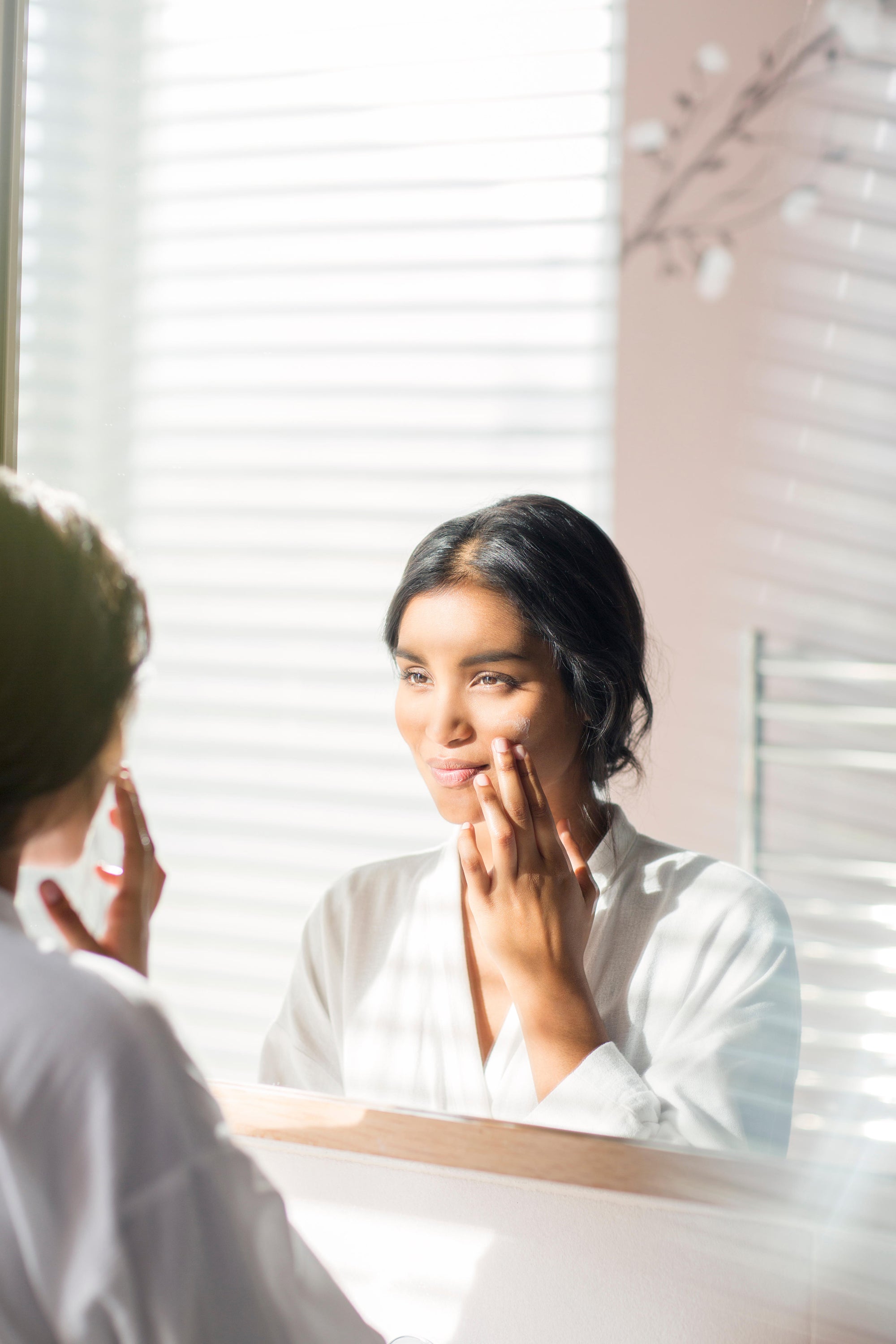What’s the best serum for your skin type?
Finding the right super-powered serum can make all the difference, says Katie Wright.

A host of exciting new launches is putting serums in the spotlight, but what if you’ve yet to add this under-rated essential to your beauty routine?
We asked skincare experts for their advice on how to find the best serum for your skin…
What are the benefits of using a skincare serum?
“A serum delivers a high concentration of an active skincare ingredient to the skin – the nature of the active will depend on the skincare concern,” says Dr Mary Sommerlad, consultant dermatologist for Vichy which is why it’s so important to find the product that’s best suited to your needs.
Lighter in texture than moisturisers or creams, serums are “quickly absorbed into the skin, and are therefore a fantastic way to layer products,” says dermatologist Dr Sharon Wong, who is currently working with Philips “Some serums will combine several actives to target different skin issues simultaneously. This approach of pared back skincare, delivering only what is needed in a personalised and minimalistic way, otherwise known as ‘skinimalism’, has become an increasingly popular and sensible trend in skincare.”
How should serum be applied?
“As serums tend to be lightweight and crammed full of actives they are best applied onto clean, slightly damp skin after a cleanser but before moisturiser,” says Dr Sommerlad.
Dr Wong says: “Anti-ageing serums containing photosensitising retinols should be applied in the evening,” and followed with SPF 30 or above the next morning. “Generally speaking, if the serum is for antioxidant purposes, this should be used during the day.”
Mature skin
In terms of the best serum ingredients for mature skin, Dr Wong says: “The effect of retinols (Vitamin A derivatives) on improving collagen production, evening out skin tone and improving cell turnover is well established, and has sealed its status as the ultimate active to include in any anti-ageing routine.”
She also recommends Vitamin C for it’s antioxidant effects and as “an important co-factor in collagen production. Mature skin tends to be on the drier side and retaining moisture becomes more challenging, so including hyaluronic acid in the serum is recommended, but it can also help to offset any dryness caused by the retinol.”
Avon Anew Renewal Protinol Power Serum, £16 (was £22)
Darker skin tones
For brown and black skin tones – types five and six on the Fitzpatrick scale – an oil-based serum is ideal.
“To best protect, nourish and treat darker skin tones, it’s really important to use a serum that’s rich in antioxidants,” says Julian Boaitey, founder of Yendy. “Baobab seed oil boasts the highest antioxidant content of all its superfood friends, increasing collagen production in the skin, whilst lightening dark spots and locking in moisture.”
He also recommends marula oil for “acne-induced hyperpigmentation, due to the natural Vitamin C that’s in it” and rosehip for “evening out the skin tone, whilst also increasing the skin’s natural elasticity.”
Yendy Antioxidant Power Serum, £18
Oily
“For oily skin, look for serums that are hydrating without being too heavy,” says Dr Sommerlad. Hyaluronic acid, which draws moisture into the skin is “unlikely to clog pores or leave a greasy residue. It’s effective in keeping skin well hydrated.”
Vichy Minéral 89 Hyaluronic Acid Hydration Booster Serum, £18.75 (was £25), Boots
Sensitive
If your skin reacts to active ingredients, Dr Sommerlad recommends “serums that are unlikely to trigger the skin, but instead, are able to hydrate it.” Hyaluronic acid is more gentle than it sounds, especially when part of a lightweight formula.
Erborian Yuza Super Serum, £46, Space NK
Dry
Dr Wong is also a fan of hyaluronic acid for dry skin, calling it “the key ingredient to quench thirsty skin. As a highly-effective humectant, it has the ability to trap and retain water molecules to significantly boost skin hydration.”
Bliss Glow & Hydrate Day Hyaluronic Serum, £19.99, Boots
Combination
“Combination skin can experience dullness in some areas and oiliness in others – look for serums which are multitasking,” says Dr Sommerlad, and Vitamin C, which has “antioxidant benefits, as well as the ability to help with pigmentation issues.”
SkinSense Hydranet Bi-Phase Cell Renewal Serum, £30
Acne prone
Chemical exfoliation is essential for helping to keep pores clear and prevent spots from forming, which means “hydroxy acids such as salicylic acid, lactic and glycolic acid,” says Dr Wong. Other key ingredients to look out for are anti-inflammatory actives such as niacinamide, which helps to regulate sebum production, and Vitamin C to reduce associated post acne scarring and pigmentation.”
Aurelia London Resurfacing Serum, £64
Bookmark popover
Removed from bookmarks